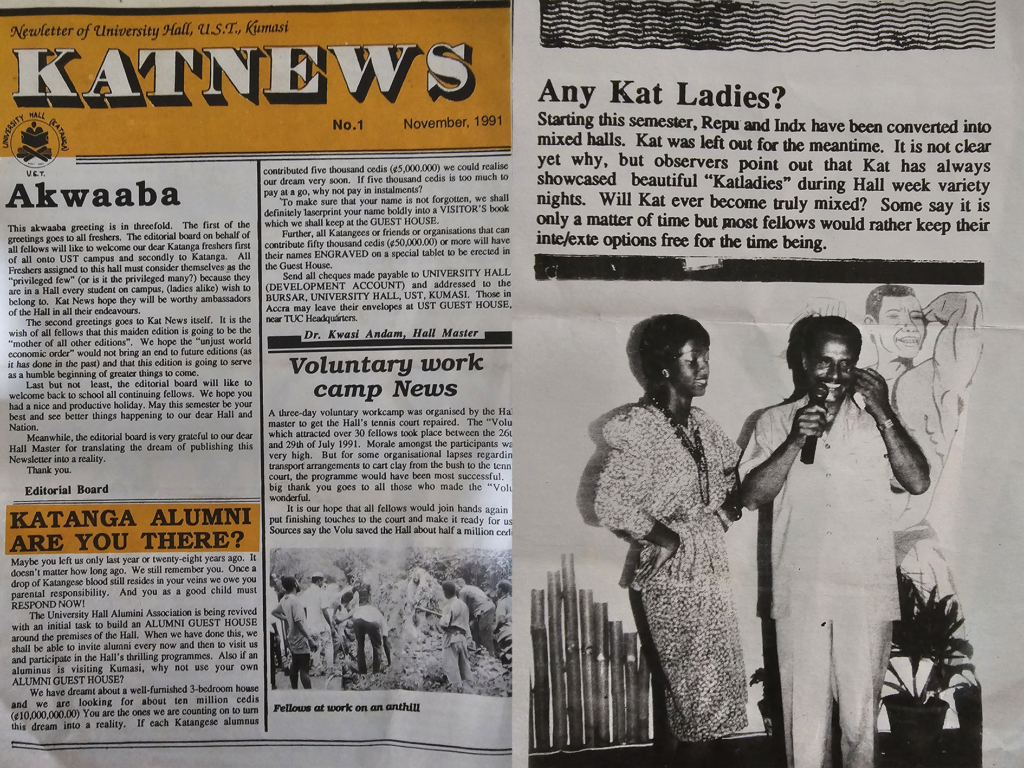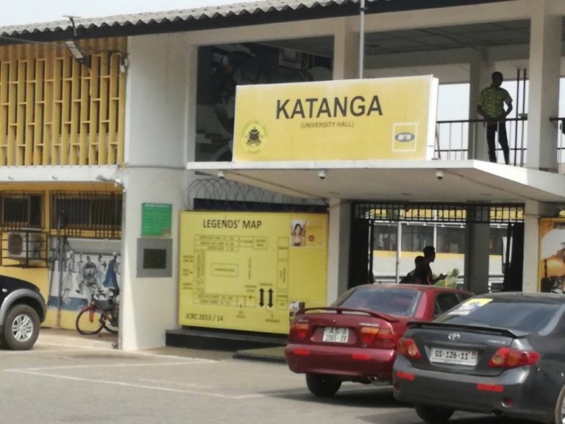
Audio By Carbonatix
In November 1991, a satirical headline in KATNEWS, a newsletter circulated among residents of University Hall at the University of Science and Technology (now KNUST), posed a light-hearted yet provocative question: “Any Kat Ladies?”
At the time, the idea of female students living in University Hall, popularly known as Katanga, seemed improbable. The reference came amid the conversion of two other halls, Republic and Independence, into mixed-gender residences.
Katanga, however, remained all-male, a status the KATNEWS piece noted with dry humour: “Kat was left out for the meantime... observers point out that Kat has always showcased beautiful Katladies during Hall Week variety nights.”

Decades later, that tongue-in-cheek query resurfaced in a very different context, one marked by campus protests, national media coverage and a formal policy shift by university authorities.
Under the administration of Vice-Chancellor Professor Kwasi Obiri-Danso, KNUST announced plans to convert University Hall and Unity Hall into mixed-gender accommodations. The change, framed as part of a broader strategy to improve access and inclusion in student housing, quickly met resistance.
Alumni of University Hall organized a protest in Accra, marching from Kwame Nkrumah Circle to the Ministry of Education to deliver a petition. Placards read “Say no to mixed halls” and “Preserve Katanga’s legacy,” underscoring the emotional and cultural significance of the hall to its former residents.
Critics of the policy argued that the move threatened the unique identity and long-standing traditions of University Hall, known for its emphasis on student activism, male bonding and leadership training. Supporters of the policy, including university management, emphasized the need to accommodate increasing student numbers and promote a more inclusive campus environment.
The tensions echoed similar developments at the University of Ghana in 2010, when proposed changes to the all-male Commonwealth Hall sparked debates over tradition, equity and institutional direction.
Today, University Hall operates as a mixed hall in line with the university's housing policy. While the transition remains a point of contention among some alumni and students, it marks a clear shift in how institutions like KNUST are navigating the balance between tradition and reform.
The satirical question from 1991, “Any Kat Ladies?”, has thus moved from jest to reality, reflecting broader societal changes and the challenges of policy implementation in higher education.
Latest Stories
-
Family of rescued baby demands justice as Odododiodio MP urges stronger security measures
1 minute -
This Saturday on Newsfile: Burkina Faso attack, Ofori-Atta off red notice and CJ’s petition dismissal
10 minutes -
Ghana Link dismisses ‘missing’ transit truck claims
17 minutes -
French soldier dies after being shot in the head during ‘game’ with other soldiers
18 minutes -
Urgent research needed to tackle AI threats, says Google AI boss
23 minutes -
Digital harassment against women MPs undermines democracy – GenCED
25 minutes -
Birim North Police, Blue Water Guards arrest illegal chainsaw operators in dawn raid
28 minutes -
Rare prison sentences handed to Cameroon soldiers after killing of 21 civilians
32 minutes -
Birim North Police, Blue Water Guards arrest illegal chainsaw operators in dawn raid
37 minutes -
Mamprobi Polyclinic baby theft: Mother of two remanded as prosecution alleges syndicate plot
43 minutes -
‘World Cup ticket isn’t a free pass’ – US Embassy warns Ghanaian fans against visa overstay
58 minutes -
Christian Council of Ghana calls for inclusive justice on World Day of Social Justice
59 minutes -
New Juaben South MCE visits family of victim of Burkina Faso attack
1 hour -
Cocoa farmers picket COCOBOD, accuse gov’t of betrayal over prices
1 hour -
Ban on non-ferrous scrap export to boost processed metal earnings by up to $300m annually – Mahama
1 hour

